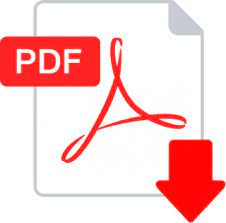PERANCANGAN GAME EDUKASI GOI BERBASISKAN FLASH
DOI:
https://doi.org/10.34010/js.v6i2.581Keywords:
educational games, vocabulary, JapaneseAbstract
In learning japanese language, vocabulary is the most important thing in learning a language especially Japanese language. But in the process of learning vocabulary, students sometimes feel bored with the usual methods done in learning. To overcome the saturation, then made an educational game that provides education in the form of basic vocabulary of Japanese language. The design of this game successfully done by using the system development method is waterfall where progress is seen continue to flow down like a waterfall, which passes through the demands definition phase, system & software design, implementation & unit testing, integration & system testing, operation & maintance. This game is implemented by using the programming language actionscript using Adobe Flash CS6 software.References
Adobe Creative Team. (2012). Adobe Flash Professional CS6 Classroom in a Book. United State of America : Adobe Press.
Alemi, M. (2010), Educational Game as a Vehicle to Teaching Vocabulary. [Online] Tersedia:http://www.xn--mgb9a8ae98d.com/wp- content/uploads/2013/02/Educational-Games-as-a-Vehicle-to-Teaching-Vocabulary.pdf. [26 Oktober 2016].
Dahidi & Sudjianto. (2004). Pengantar Linguistik Bahasa Jepang. Jakarta : Kesaint Blanc.
Gyncild, B. (2012). Adobe Photoshop CS6 Classroom in a Book. United State of America : Adobe Press.
Lubis, D. (2017). Edukasi Sebagai Game Edukasi Kosakata Bahasa Jepang Tingkat Dasar Bandung : UNIKOM, Tidak dipublikasikan
Mardliyah, N. Suryani, N. Haryati, S. (2014). Perbedaan Pengaruh Cooperative Learning Tipe Think Pair Share (TPS) dan Metode Konvensional terhadap Prestasi Belajar Mata Pelajaran Bahasa Inggris Ditinjau dari Motivasi Belajar Siswa Kelas VIII pada Mts Negeri di Kabupaten Kudus. [Online] Tersedia : http://jurnal.fkip.uns.ac.id/index.php/tp/article/viewFile/3660/2561. [9 Juli 2017]
Prayuda, S. (2014). Game edukasi matematika berbasis adobe flash cs6 pada materi bangun ruang sisi datar di smp aisyiah muhammadiyah 3 malang. [Online] Tersedia:https://doc-00-2o-docs.googleusercontent.com/docs/securesc/3kg6c4iiaosbf0k3j8hoeujg8h5fce8u/bnn918sc5gp6sjvb4575es3jgq6fq0hc/1493416800000/15303783809553496111/16093463377310454319/0Bwpoqsb5QRoSc3VQNU1YN3Y1OTg?e=download&nonce=mhnh0ne7ktioa&user=16093463377310454319&hash=0l1vhor3stptvhi0dn2h1vtlij1thnr3. [29 April 2017].
Ryuugakusei Nihongo Kyouiku Sentaa. (2005). Shokyuu Nihongo. Tokyo : Bonjinsha.
Syufagi, M. A. (2015). Penerapan aspek pedagogik untuk membangun komputer game merupakan inti dari game pendidikan. [Online] Tersedia : http://jurnal.stmik-yadika.ac.id/index.php/spirit/article/view/28. [9 Juli 2017].
Setiawati, Sumirah A. (2012). Kosakata Bahasa Jepang (Kajian Semantik ). [Online]. Tersedia : http://www.pendidikanbahasajepang-unnes.com/2012/04/kosakata-dalam-bahasa-jepang-kajian.html?m=0 [20 Juli 2017].
Sommerville, I. (2005). Integrated requirements engineering: A tutorial. [Online] Tersedia:http://www.cs.uleth.ca/~benkoczi/3720/papers/sommerville_tutorial.pdf. [20 Juli 2017].
Sommerville, I. (2007). Software engineering (8th ed.). Harlow: Pearson.
Vahdat, S., & Behbahani, A. R. (2013). The effect of video games on Iranian EFL learners’ vocabulary learning. Reading, 13(1). [Online] Tersedia : https://pdfs.semanticscholar.org/95c5/05d26d9f961ef26a7f299402d83799b1a452.pdf. [26 Oktober 2016]
Downloads
Published
Issue
Section
License
- Authors retain copyright and grant the journal right of first publication with the work simultaneously licensed under a Creative Commons Attribution License that allows others to share the work with an acknowledgement of the work's authorship and initial publication in this journal.
- Authors are able to enter into separate, additional contractual arrangements for the non-exclusive distribution of the journal's published version of the work (e.g., post it to an institutional repository or publish it in a book), with an acknowledgement of its initial publication in this journal.
- Authors are permitted and encouraged to post their work online (e.g., in institutional repositories or on their website) prior to and during the submission process, as it can lead to productive exchanges, as well as earlier and greater citation of published work (See The Effect of Open Access)











.jpg)

